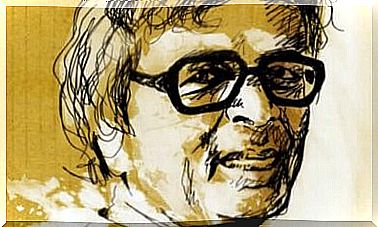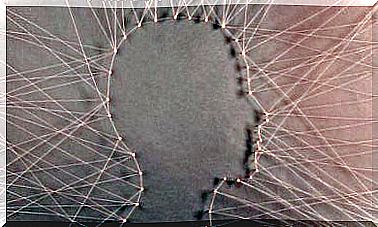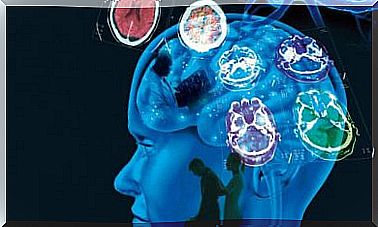11 Things People Often Ask Themselves After The Loss Of A Loved One
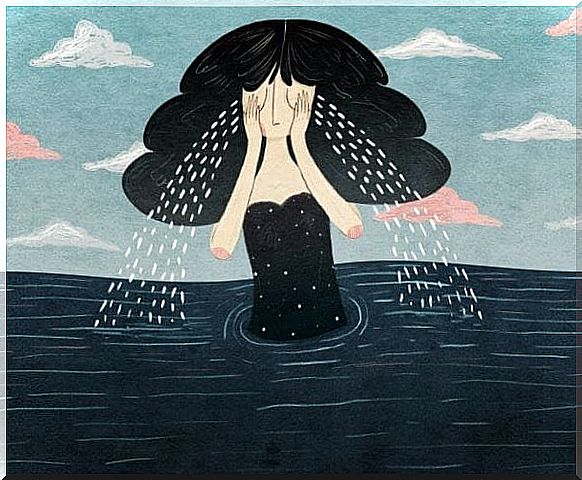
The loss of a loved one causes enormous grief and puts us in a state of lethargy that we think we can never get out of. This is very natural after a loss, and each person grieves differently. When someone leaves us, something in us breaks. It is a difficult feeling to explain, and encompasses a multitude of thoughts and questions that we often do not have the answers to.
To deal with these feelings and help ourselves, we must allow ourselves to examine and examine the questions that torment us and occupy our thoughts. We must give ourselves the opportunity to listen to and express our feelings. There are many, varied ways to respond – from crying and nervousness to sadness and fear – we all deal with grief in different ways.

It is essential that we give ourselves time to react and process things. And that we let the people who love us help us with this. Silence, a look, a touch and someone by our side who is not in a hurry and who does not feel uncomfortable – these gestures are much more valuable than words in these situations.

11 things we ask ourselves after the loss of a loved one
While each person experiences the loss of a loved one in a different way, there are some questions that come to most of us as we go through a grieving process. We cannot ignore this reality because it causes a lot of turmoil and uncertainty in our emotions. Let’s look at some of the most common ( Martínez González, 2010 ):
1. Will I forget his/her voice, smile, face one day?
After the loss of a loved one, we try as hard as possible to keep this person with us in our daily lives. It feels like a betrayal not to remember that person’s smile, the look on his face and the way he walks. However, time fades that memory somewhat and we begin to have doubts. We fear that we will forget the things that defined him physically.
If this is one of the things we think about, we must remember that our loved one will still be very strong in our hearts. Even if he’s gone, and we can’t touch him or listen to him. The affection and the moments we went through together remain in our hearts and nothing and no one can take that away from us, not even time.
2. Dealing With Grief: Am I Going Crazy?
The loss of a loved one creates a state of shock, a mental block, which is extremely difficult and alienating. Experiencing so many different emotions at the same time makes us feel like we have lost control of ourselves. We should point out that this is almost always a very necessary transition phase to be able to process what has happened to us. It’s like a defense mechanism that aligns our great inner strength to produce the energy we need to stay afloat and get on with our lives.
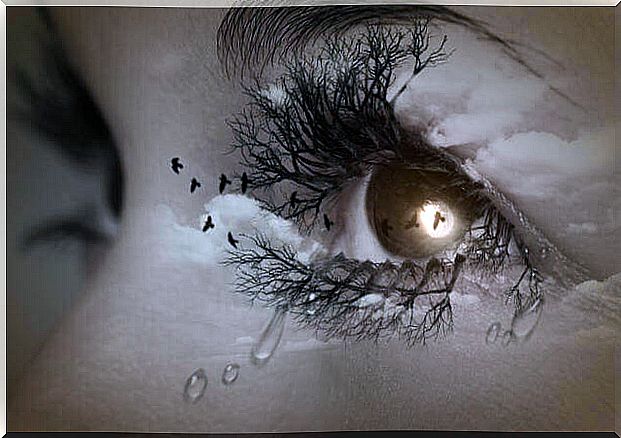
3. How long will it take?
The answer to this question varies widely as this time period depends on the circumstances, the personal characteristics, the relationship we had, the way the loss takes place, etc. However, the first year after the loss of a loved one is always very difficult because everything reminds us of the person we lost. In particular, certain dates such as Christmas, first birthdays, first public holidays, etc.
The desperation caused by not being able to share these events, achievements and feelings causes us to relentlessly relive the tragedy over and over again. However, it is true that this time period is not a passive time. Because it helps us to accept the death of our loved one and slowly learn to live with it.
4. Will I ever be the same again?
The answer to this question is NO. The loss of a loved one marks us, breaks us up and will inevitably change us. We lose part of our life, the part that was connected to this person. In some aspects we become more mature. We restore our value system, we attach importance to different things than before and we start to think differently. All of this is a learning process that often prompts us to commit ourselves to life more than ever.
5. Why did this happen to me? Why is he/she gone and why now?
In a desperate attempt to understand what is incomprehensible and unfair, we inevitably ask ourselves these kinds of questions. They aim to help us process, analyze and understand reality in a rational way. This is because we need to control and maintain the situation in order to combat the fear.
The loss of a loved one is always unwelcome and unwanted. In the absence of answers, we will eventually ask ourselves what it is all about. And this is a question that will help us better restructure our experience and our grief.

6. Am I sick?
New. Anxiety and other feelings in the case of the loss of a loved one do not mean that we are sick. It is a natural process that we have to undergo. This does not mean that we should not pay special attention to these feelings. We should always meditate on it properly. We will need an indefinite amount of time to restore our psychological balance, the part of us that allows us to control our emotions and thoughts.
7. Do I need psychological help?
Feeling bad during periods of sadness is actually very healthy. In the beginning, the grieving person has to express himself, discuss the things that are going through his head and constantly remember the absence of his loved one. Some people need a psychologist to set limits on the suffering they experience. And besides that, to be a person who listens to them and understands them unconditionally. Therapy offers this option, but no doubt not everyone needs therapeutic help along the way. This therefore depends on each individual situation.
8.What should I do with his/her personal items?
There are usually two extremes of what to do with a loved one’s personal items. Some people get rid of everything with the idea that it will take the pain away from their memories. Others keep everything exactly as the deceased left behind. Each of these responses shows us that there has been no acceptance of the loss. Therefore, if you know someone who is in this situation, it is advisable to help that person cope with their loss.
There is no ideal way to do this, but we should try to avoid extremes. The healthiest thing to do is to get rid of or give things away little by little. When we feel strong enough to do this. However, we must keep in mind that keeping things of more sentimental value will help us remember the person with greater affection.
9. Will time heal everything?
Time does not heal everything, but it certainly offers perspective. The passage of time and gaining new experiences along the way helps us somehow distance ourselves from the painful event. This brings us to the point where we have to choose which stance we want to adopt: we can adopt a defeatist stance or we can adopt a victorious stance. Time helps us to think about these things.
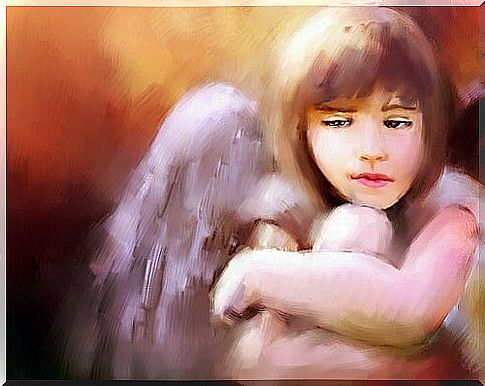
10. When is the grieving process over?
The grieving process ends when we begin to take an interest in life again. When our energy is focused on relationships, on ourselves, on our work projects. When we have the urge to feel better again and we are enthusiastic about life again. That is when we can remember with fondness and nostalgia the person we lost. The memories will no longer cause constant pain.
11. What can I do with everything I experience and feel?
After the whirlwind of emotions and sensations that has been aroused in us, we are confronted with how useful this painful experience will be in our lives. Each of these events has an intimate meaning that we must process, investigate and decipher in order to rebuild our lives. It can help to write about it, listen to music that helps us process our emotions, or perform a meaningful activity. This makes it easier to remember our loved one with gratitude and to remember him/her with affection. We will be aware that this person will never leave us because he/she will remain in our hearts forever in the form of memories and life lessons. We will be his/her true essence, an essence that will never disappear.
Featured image by Mayra Arvizo
